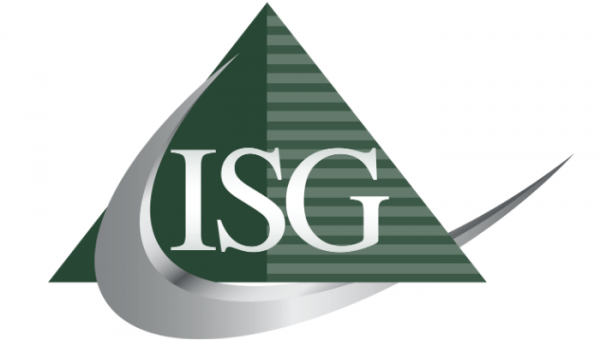 Artificial intelligence isn’t going to disrupt business in the future; it’s here now and already transforming the way business is conducted, asserts John Wolf, chief operating officer of ISG. In a recent conversation, Wolf shed light on how AI is revolutionizing the insurance industry, heralding a new era of innovation with profound implications.
Artificial intelligence isn’t going to disrupt business in the future; it’s here now and already transforming the way business is conducted, asserts John Wolf, chief operating officer of ISG. In a recent conversation, Wolf shed light on how AI is revolutionizing the insurance industry, heralding a new era of innovation with profound implications.
While the origins of AI trace back to the 1950s, its evolution has accelerated dramatically in recent years. From computers triumphing over human chess champions to digital assistants like Alexa and Siri, AI has seamlessly integrated into our daily lives. Yet, the advent of groundbreaking technologies like ChatGPT, a conversational AI model developed by OpenAI, truly marks a paradigm shift. With each interaction, these models become more adept, opening boundless possibilities.
In the insurance sector, AI is poised to revolutionize functions, from fraud detection to underwriting, customer service, and claims management. Wolf says that AI’s deployment serves three primary objectives: to increase productivity, reduce costs, and enhance both employee and customer experiences. “By examining AI through these lenses,” Wolf explains, “businesses can effectively harness its full potential.”
Within ISG, a tech-forward culture has fostered an eagerness to embrace new technological advancements. Wolf highlights the company’s stance as an early adopter of AI, emphasizing its integration into existing workflows.
“We thought our previous tech advancements were strong,” Wolf quips, “but when you add unique AI engines into the mix, there’s a whole world of new possibilities and we’re just getting started.”
Conversational vs. Generative AI
Artificial intelligence offers many benefits – from the automation of mundane tasks to generating new content. There are two types of AI, conversational and generative. Conversational AI helps computers interact with humans in a natural way and is used to support chatbots, virtual assistants and other messaging applications. Generative AI is being used to create new content – text, images, animation, and even sounds – using machine learning. ChatGPT is an example of a generative AI application.
ISG’s commitment to using conversational and generative AI is evident across its business. For example, in its investigations vertical, AI aids in social intelligence gathering, bolstering data mining capabilities and producing comprehensive summary reports.
“Facial recognition capabilities are also being used to not only identify subjects but to provide a confidence score rating that determines how well a digital asset matches a control photo,” said Wolf. “The company is also training bots to understand the investigations business using historical data to hone the system’s capabilities.”
Training and deep learning algorithms are enabling ISG’s systems to continually learn through each interaction and, over time, leveraging these algorithms promises to help ISG social intelligence, desktop and field investigators become more efficient and help customers with decision support.
Similarly, within the medical management sector, an AI architecture named Socrates is poised to streamline processes, shorten claims processing times, and empower professionals with enhanced decision-making capabilities. The technology is turning unstructured enterprise data into useful information and presenting it in easy-to-understand formats for claims and legal teams. “We’re effectively condensing hours of readings into minutes,” said Wolf, “and reducing medical record processing time by over 99%.”
The integration of conversational and generative AI technologies into existing workflows will have a tangible impact on client cost savings by shortening claims cycle times and empowering professionals with enhanced decision-making capabilities. Wolf says that as AI capabilities evolve, “there will be further automation of manual tasks that will help expedite turnaround times to deliver both direct and indirect savings to clients.”
Deploying AI Safely
As AI permeates business meetings across the insurance industry, discussions surrounding security follow – we are an industry centered on risk mitigation, after all. ISG, cognizant of these implications, maintains a dedicated security team, ensuring comprehensive protection against cybersecurity threats.
Beyond the immediate benefits of AI integrations, ISG takes into consideration broader implications it must consider, such as potential biases inherent in AI algorithms, data privacy concerns, and the need for transparency in decision making. “We know we have a duty to use the technology responsibly and security always remains at the forefront of our approach,” says Wolf. Certifications such as HITRUST and URAC underscore the company’s unwavering commitment to safeguarding client data.
Amidst discussions of AI’s transformative potential, Wolf is quick to emphasize the crucial role of people within ISG’s ethos. “While some fear AI will replace humans,” he states, “our associates view it as a tool to enhance efficiency, not threaten job security.” The company’s ‘Win as One’ culture underscores this sentiment, prioritizing teamwork and customer-centricity.
Akin to the value proposition ISG brings to customers, the company’s internal strategy has always been to deploy technology to help associates be more efficient and allow them to focus on higher value activities to support customers.
“When we remove administrative tasks or data entry from their day, we’ve helped them become more efficient, we’ve given them more time to spend with clients, and we’ve helped increase their job satisfaction,” says Wolf. “It’s a win for everyone.”
As ISG navigates the intersection of people, process, and AI, Wolf remains optimistic about the future. “In a rapidly evolving landscape,” he muses, “being visionary on the technology front is paramount.”
With AI as a catalyst for innovation, ISG is poised to achieve new heights of success, guided by a steadfast commitment to excellence based on a dynamic fusion of human ingenuity and technological prowess.














